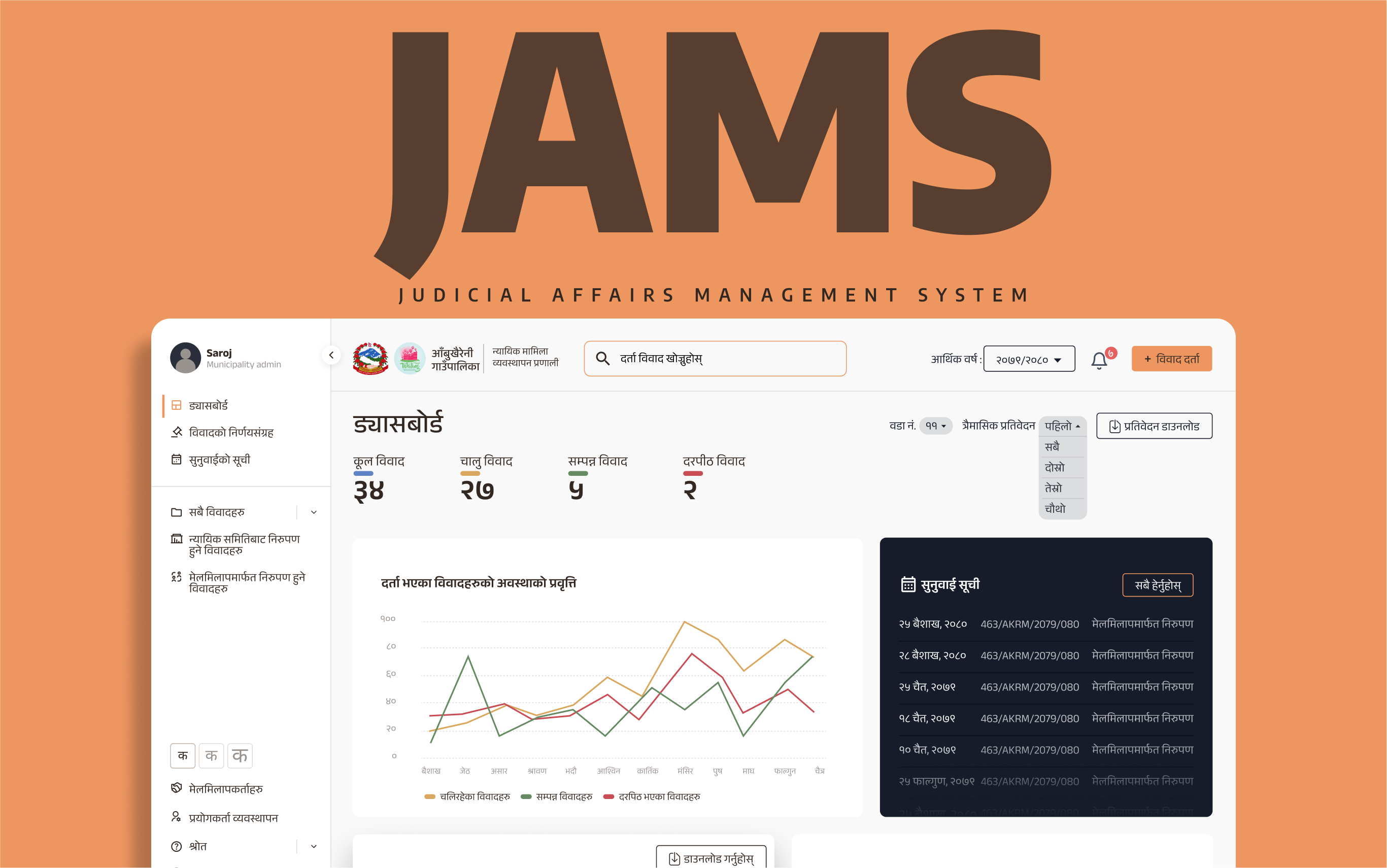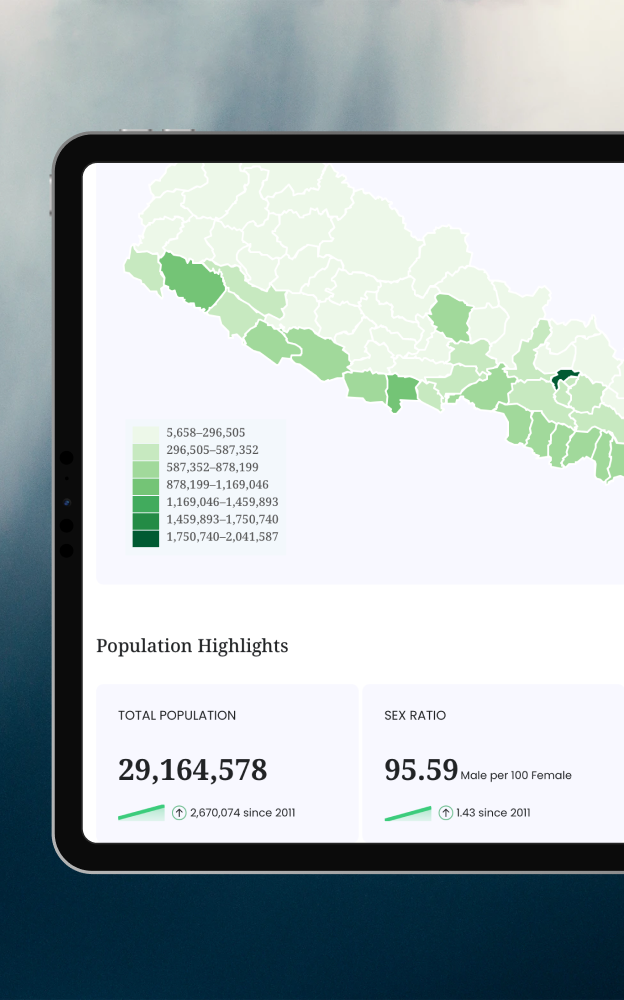A Digital Leap for Local Dispute Resolution in Nepal
WHAT WE DID
UI/UX Design, Software Development, Data EngineeringINDUSTRY
Civic/Government
Access to justice in Nepal—especially at the local level—has long been hindered by systemic challenges such as lengthy court processes, high caseloads, limited judicial infrastructure, and difficult geography. As of FY 2079/80, over 114,000 cases were pending in district courts, reflecting the strain on the formal judiciary and its slow rate of justice delivery. Although the Local Government Operation Act, 2074 empowers Judicial Committees at the local level to settle specific disputes through reconciliation, their operations have remained largely manual, fragmented, and undocumented. Most local governments lacked a scientific method to record disputes, manage case data, or support decision-making processes. Moreover, the absence of structured digital tools limited the potential of judicial committees to meaningfully ease the burden on mainstream courts or uphold the principles of federalism through decentralized justice.
To address these gaps, we developed the Judicial Affairs Management System (JAMS), a tech-enabled platform tailored to support Judicial Committees at the local government level in Nepal. Grounded in Sections 46, 47, and 53 of the Local Government Operation Act, JAMS digitizes the entire dispute resolution workflow, from case registration to record-keeping and decision documentation, helping local governments manage their judicial functions efficiently and transparently.
JAMS provides structured data management tools, legal reference hubs, and decision-support features like knowledge sheets, helping judicial committees deliver consistent and legally sound resolutions. The system also facilitates data analysis and visualization, enabling municipalities to track caseload trends and improve local justice delivery over time. Beyond technology, JAMS strengthens the very foundation of federalism by empowering local governments to resolve disputes affordably, accessibly, and within their jurisdiction, reducing the burden on district courts and making justice more reachable for marginalized and remote populations.
By institutionalizing digital processes in local dispute resolution, JAMS not only complements Nepal’s mainstream judicial system but also reinforces the broader federal structure by promoting timely, decentralized, and citizen-friendly justice.




